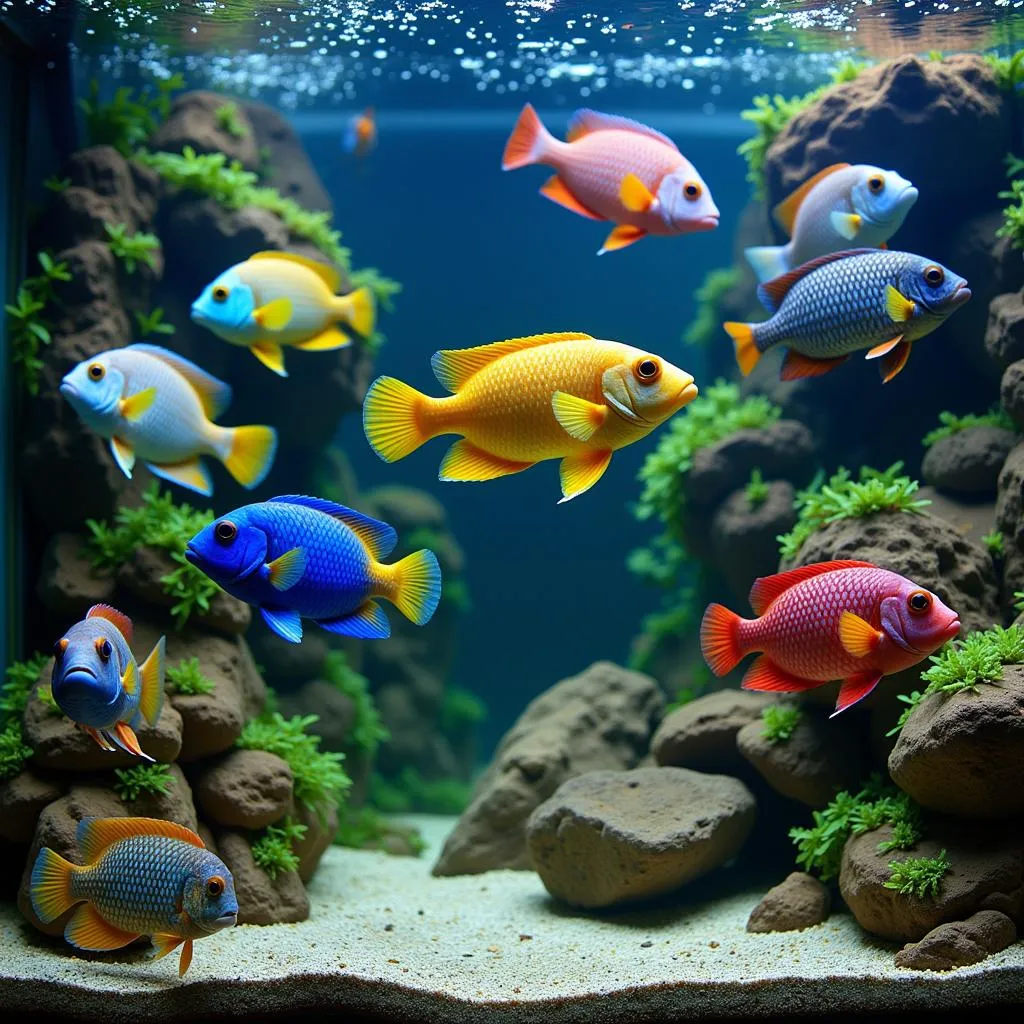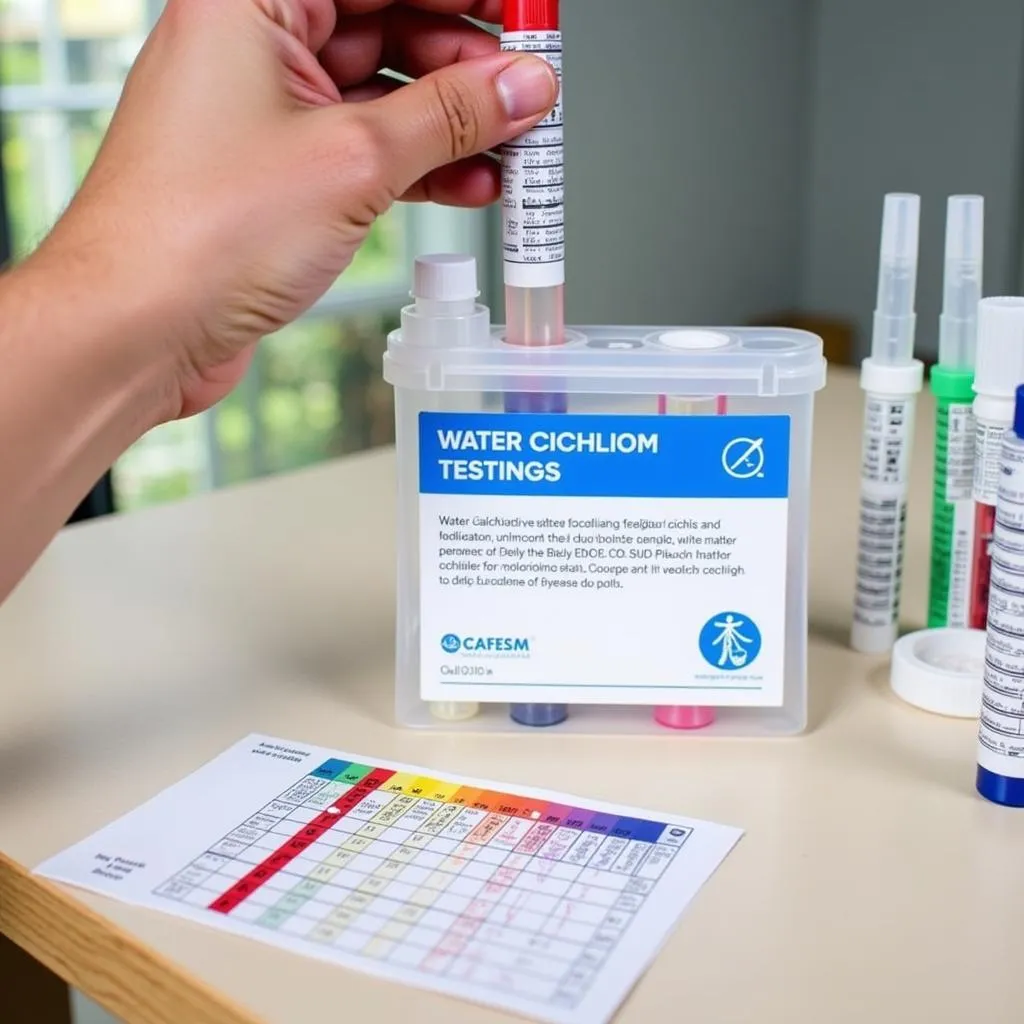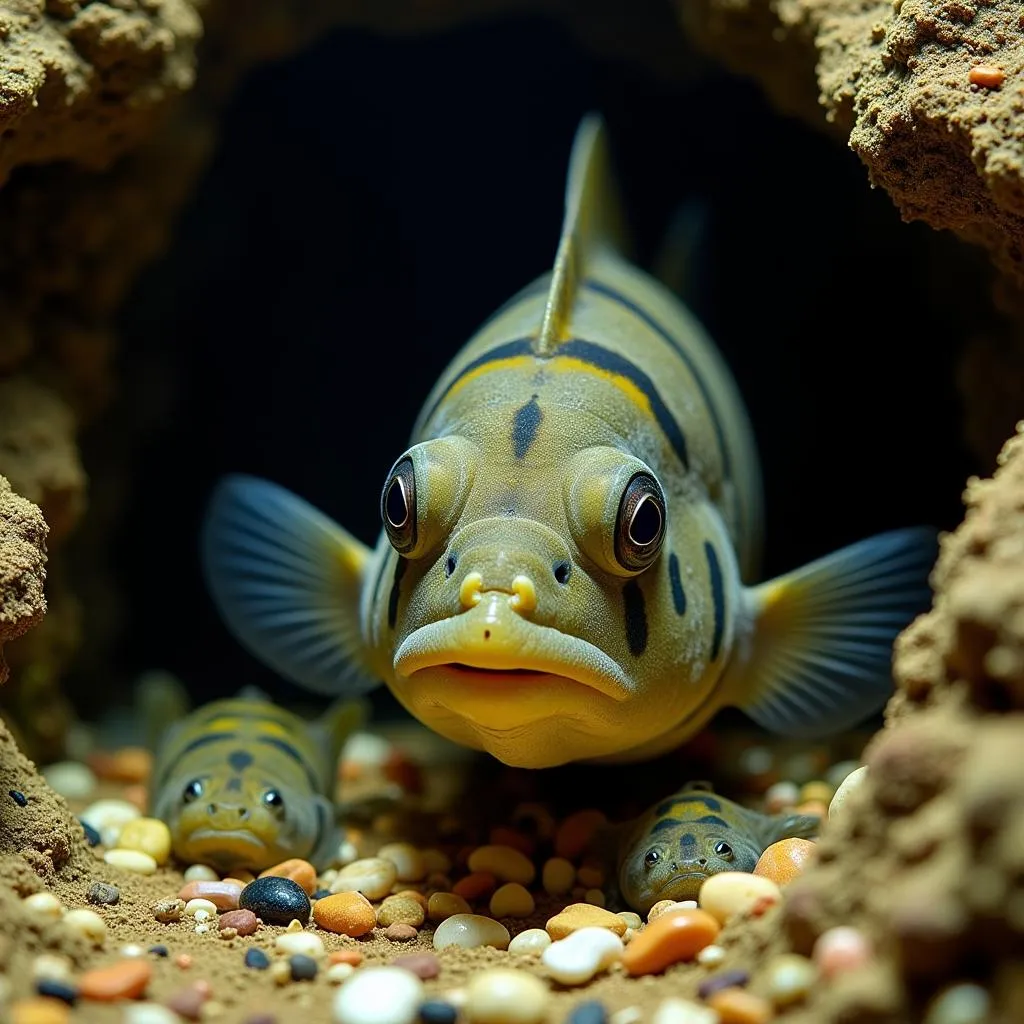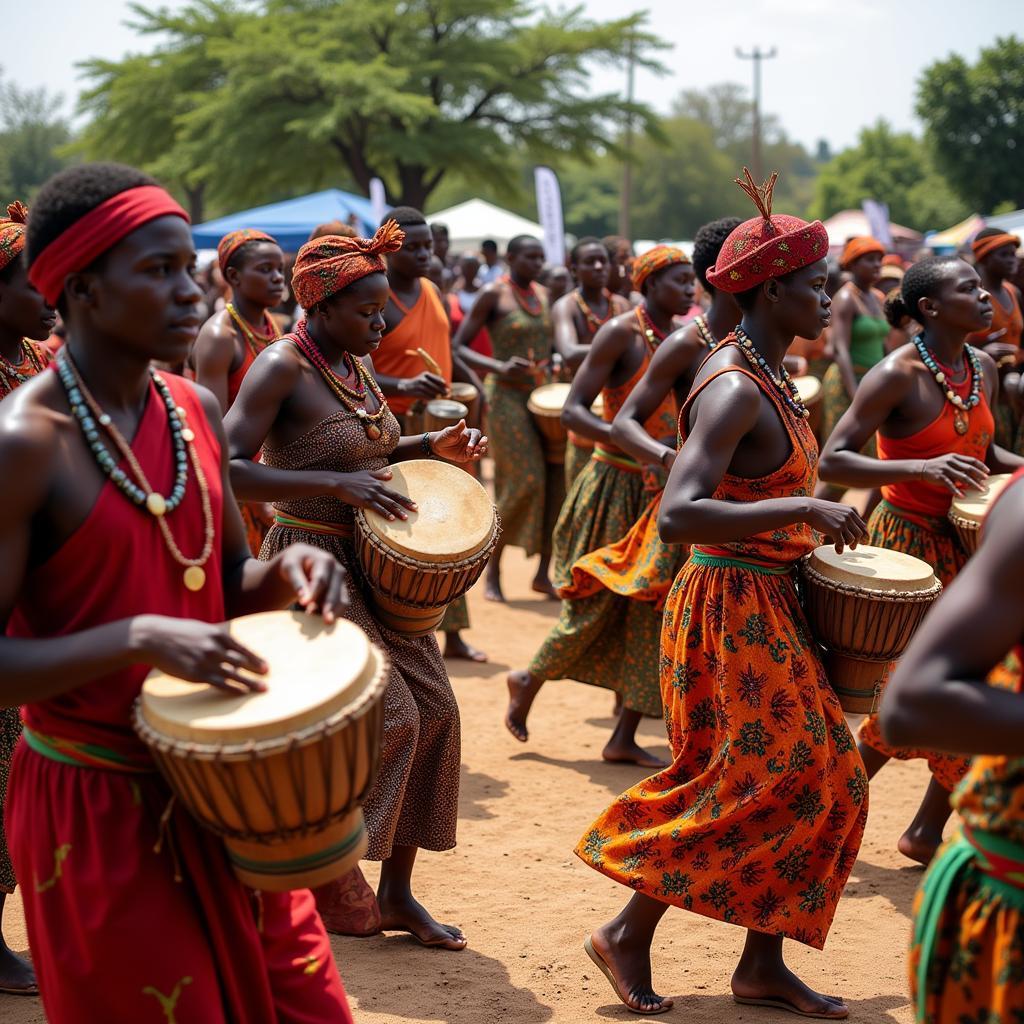African Cichlid Water Hardness: A Comprehensive Guide
Understanding the water requirements of your African cichlids is crucial for their health and well-being. African Cichlid Water Hardness is a key factor that directly impacts their overall vitality.
Why is Water Hardness Important for African Cichlids?
Native to the Rift Valley lakes of Africa, these vibrant fish have adapted to specific water conditions, including a higher level of mineral content, also known as water hardness. This hardness is measured by the concentration of dissolved minerals, primarily calcium and magnesium.
The Impact of Water Hardness on Cichlid Health
Maintaining the appropriate african cichlid water hardness level contributes to several crucial aspects of their health:
- Healthy Growth and Bone Development: Calcium, a major component of water hardness, is essential for strong bones and skeletal structure.
- Osmoregulation: The balance of minerals within a fish’s body and its surrounding water is vital for regulating bodily fluids. Proper water hardness helps maintain this crucial equilibrium.
- Immune System Function: A stable and suitable water environment strengthens their immune system, making them less susceptible to diseases.
 African Cichlids in an Aquarium
African Cichlids in an Aquarium
Types of Water Hardness
Understanding the different types of water hardness is key:
- General Hardness (GH): This refers to the total concentration of dissolved magnesium and calcium salts in the water.
- Carbonate Hardness (KH): This measures the carbonate and bicarbonate ions, which contribute to the water’s buffering capacity and pH stability.
Ideal Water Hardness for African Cichlids
While specific preferences may vary slightly among different African cichlid species, a general guideline for optimal water hardness is:
- GH: 10-18 dGH (degrees of General Hardness)
- KH: 6-10 dKH (degrees of Carbonate Hardness)
Measuring Water Hardness
Testing your aquarium water regularly is crucial to ensure the right conditions for your cichlids. You can easily measure water hardness using readily available test kits:
- GH Test Kits: These kits provide a numerical reading of the general hardness in your tank.
- KH Test Kits: Similar to GH kits, these measure the carbonate hardness levels.
 Aquarium Water Testing Kit
Aquarium Water Testing Kit
Adjusting Water Hardness
If your tap water is naturally soft, you can increase the hardness to suit your African cichlids’ needs:
- Crushed Coral: Adding crushed coral to your aquarium substrate can gradually increase and stabilize both GH and KH.
- Limestone Rocks: Incorporating limestone rocks african cichlid rocks can have a similar effect to crushed coral, gradually raising hardness levels.
- Commercial Water Hardeners: Various water hardening solutions are available at aquarium stores, offering a controlled way to adjust hardness parameters.
Maintaining Stable Water Parameters
Consistency is key for the well-being of your cichlids. Fluctuations in water hardness can stress fish, so aim to maintain stable levels through:
- Regular Water Changes: Perform partial water changes with appropriately treated water to replenish minerals and dilute accumulated nitrates.
- Avoid Overstocking: An overcrowded tank can lead to rapid mineral depletion and water quality issues.
- Monitor and Adjust: Regularly test and adjust your water parameters, especially after water changes or adding new fish african cichlids sexes.
Water Hardness and Cichlid Breeding
For those interested in breeding African cichlids, water hardness plays a crucial role:
- Spawning Behavior: The right water chemistry, including suitable hardness levels, can encourage spawning behavior in many cichlid species.
- Egg Development: Proper GH and KH levels are crucial for healthy egg development and hatching success.
 African Cichlid with Fry
African Cichlid with Fry
Conclusion
Providing the appropriate african cichlid water hardness is fundamental to their health, vitality, and even breeding success. By understanding the importance of water hardness, regularly monitoring and adjusting your tank’s parameters, you can create a thriving aquatic environment where your African cichlids can flourish.
FAQs about African Cichlid Water Hardness
1. Can I use distilled water for my African cichlids?
Distilled water lacks essential minerals and is not suitable for African cichlids. It’s best to use treated tap water or a blend of RO (Reverse Osmosis) water and remineralizers.
2. My water is very hard. How can I soften it for my cichlids?
While most African cichlids prefer harder water, if your water is excessively hard, you can use a water softener or mix it with RO water to achieve suitable levels.
3. How often should I test my aquarium water hardness?
It’s recommended to test your aquarium water hardness at least once a week, especially after water changes or when experiencing any issues with your fish.
4. Can I keep different African cichlid species with varying water hardness preferences together?
It’s generally best to choose cichlid species with similar water parameter requirements african cichlids species list to ensure their well-being in a community tank.
5. What are the signs of water hardness problems in African cichlids?
Signs of water hardness issues can include lethargy, loss of appetite, fin clamping, or difficulty breathing.
Need more help with your African cichlids? Check out our articles on african cichlid dealers or african cichlid fish blue yelow head.
Contact us today for personalized advice and support. Call us at: +255768904061, Email: [email protected] or visit our location in Mbarali DC Mawindi, Kangaga, Tanzania. We’re here for you 24/7.


